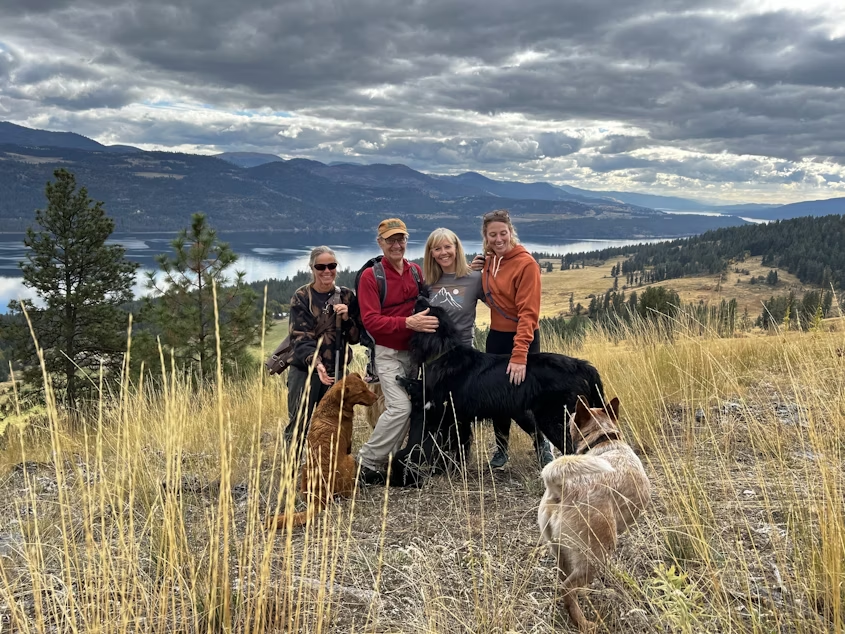It was late in the morning and the heat was building outside of Kettle Falls, Washington, when Lynn O’Connor came face to face with a bear.
She had been out walking her dogs on her property in a rural northeast corner of Washington state near the panhandle of Idaho and the border with Canada, about 70 miles north of Spokane.
O’Connor has two dogs and a neighbor’s dog regularly joins them on daily walks through fields at the edge of the Colville National Forest.
“They started chasing something in the field, and I thought it was cows, because they do that, they chase the cows,” she said. “Turned out it wasn’t a cow. It was a bear.”

The bear came around a patch of brush about six feet behind O’Connor and headed in her direction.
“All of a sudden, we were face to face on the trail,” O’Connor said. “She started huffing and gruffing and swiping with her claws.”
RELATED: How five women fought off a cougar for 45 minutes
O’Connor, a retired backcountry ranger, tried to remember everything you’re supposed to do when encountering a bear. She tried to make herself bigger. She yelled at the bear. She slowly started backing way, but the bear kept advancing toward her.
She remembered hearing in a CBC broadcast that someone had successfully fended off a grizzly bear by punching it in the nose.
“So, I thought, OK, I’ll give that a try,” she said.
She punched the bear in the nose, but still it didn’t stop advancing.
At that point, O’Connor said she knew an attack was imminent.
RELATED: The couple killed by a bear in Banff were able to send an SOS text: ‘Bear attack bad’
She dropped to the trail and folded herself into a ball.
“She was on top of me and I think what happened then was swipe, swipe, swipe, and then my dogs were on her and chased her away,” she said. “And everything was over.”
She said the entire encounter probably lasted no more than 10-15 seconds.

O’Connor stood up and looked across the field.
“I saw her cub chasing the whole group of dogs and bear, and then I realized what she was doing,” she said.
Washington Department of Fish and Wildlife officials responded to the scene and O’Connor was flown by helicopter to Spokane where she was treated for her injuries. As a retired ranger familiar with policies related to bear attacks, O’Connor knew what state officials would do next.
“I told them, ‘Don’t kill her. Please don’t kill her,’” she recalled. “She was just trying to do what mama bears do.”
State officials spent the afternoon hunting for the bear with hound dogs, but the temperature skyrocketed to near 100 degrees. After one of the dogs collapsed from the heat, they called off the search.
Even though the search was suspended, state officials did shoot a bear on O’Connor’s property the following day. O’Connor said it was not the same bear that attacked her.

O’Connor blames herself for not making more noise and for being too casual about being in a wild area that she has grown so familiar with.
“That’s why I talk about safety for the wildlife,” she said. “Since I put her in danger, some other bear got shot.”
O’Connor said she just went on her first walk after the attack Wednesday. She said family members are more willing to walk with her in the wake of the attack.
She now makes her dogs wear bells so they’re more likely to scare off bears before they get too close.
“I don’t mind seeing bears, because they usually run away,” O’Connor said. “But I’m kind of OK with not seeing one for the rest of the season.”

This post was originally published on this site be sure to check out more of their content.













































